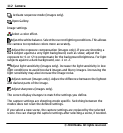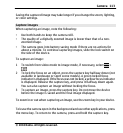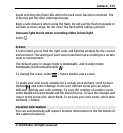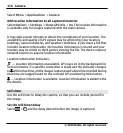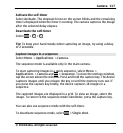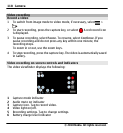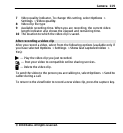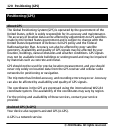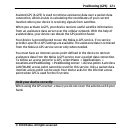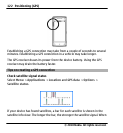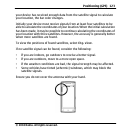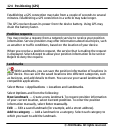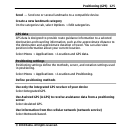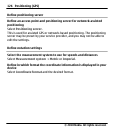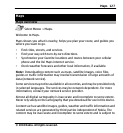
Positioning (GPS)
About GPS
The Global Positioning System (GPS) is operated by the government of the
United States, which is solely responsible for its accuracy and maintenance.
The accuracy of location data can be affected by adjustments to GPS satellites
made by the United States government and is subject to change with the
United States Department of Defense civil GPS policy and the Federal
Radionavigation Plan. Accuracy can also be affected by poor satellite
geometry. Availability and quality of GPS signals may be affected by your
location, buildings, natural obstacles and weather conditions. GPS signals
may not be available inside buildings or underground and may be impaired
by materials such as concrete and metal.
GPS should not be used for precise location measurement, and you should
never rely solely on location data from the GPS receiver and cellular radio
networks for positioning or navigation.
The trip meter has limited accuracy, and rounding errors may occur. Accuracy
can also be affected by availability and quality of GPS signals.
The coordinates in the GPS are expressed using the international WGS-84
coordinate system. The availability of the coordinates may vary by region.
For the pricing and availability of these services, contact your service
provider.
Assisted GPS (A-GPS)
Your device also supports assisted GPS (A-GPS).
A-GPS is a network service.
120 Positioning (GPS)
© 2010 Nokia. All rights reserved.



